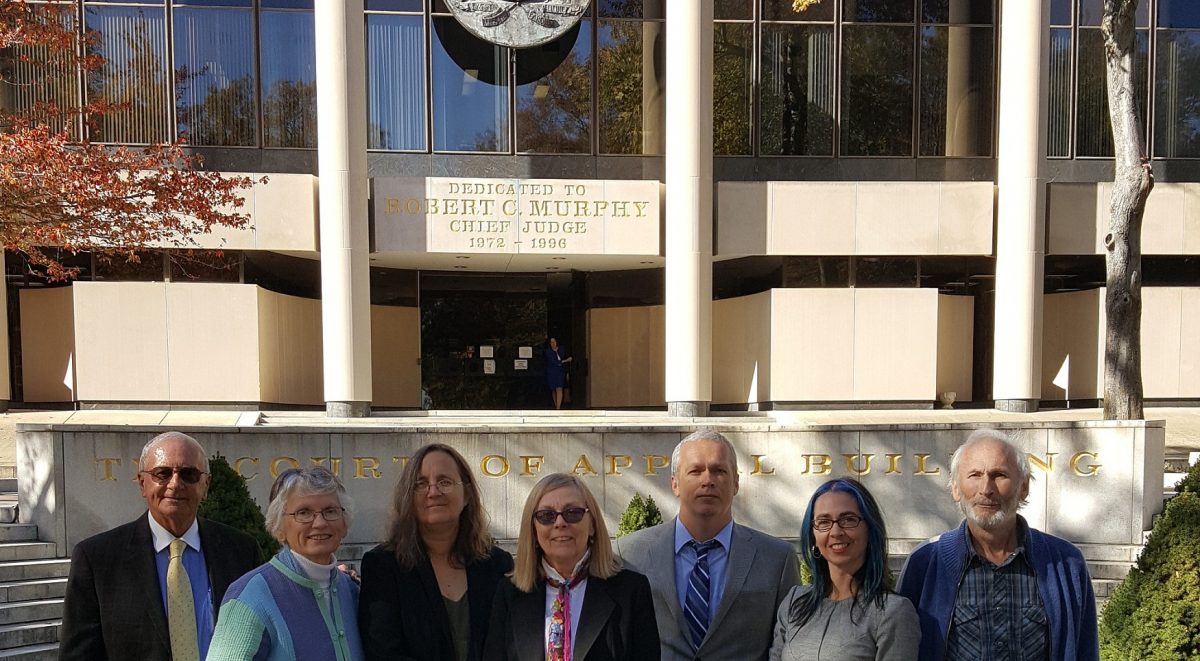It is unfortunate that the PSC does not endeavor to protect Maryland residents. They have granted Dominion’s requests for unfettered pollution at their Cove Point fracked gas export terminal.
10/2, 7pm, at Patuxent High School — Tell the MD PSC not to lift air pollution limits and monitoring from the Cove Point export terminal project power plant. Dominion claims that fugitive gas emissions from the piping system of its power plant (used solely to power the export terminal) can’t be monitored, but that there will be a lot more of them than they previously reported.
When Dominion was granted a permit (Certificate of Public Convenience and Necessity — CPCN) to build the 130MW power plant, the MD Public Service Commission (PSC) put conditions on the permit that Dominion agreed to. Some of them involved pollution limits and monitoring. Dominion has now asked to be excused from those conditions.
Don’t let them get away with this! Come to the public hearing and tell them that you won’t stand for unregulated poisonous flammable gas being spewed into the neighborhood. October 2, 7pm, at Patuxent High School Auditorium in Lusby.
Please RSVP here and share the event!
Here’s the backstory…
Disappointing Decision in Dominion/MD PSC Court of Special Appeals Case
Sean Canavan, Esq. presented oral arguments on behalf of The Accokeek, Mattawoman, Piscataway Creeks Communities Council (AMP Creeks) before the Maryland Court of Appeals on November 7 in a landmark case that, if successful, could completely halt the Dominion Cove Point export terminal under construction in Lusby, Maryland. Lawyers from the Public Service Commission (PSC) and Dominion Cove Point (DCP), a subsidiary of Dominion Midstream, also presented arguments. The Court of Appeals is Maryland’s supreme court.
The court considered three questions raised by AMP Creeks in lower courts:
- Did the Public Service Commission act outside its statutory authority by imposing taxes, or mandatory payments, which it was not empowered to enact?
- Were the Public Service Commission’s findings regarding the economic effects of the Generating Station under Md. PUBLIC UTILITIES Code § 7-207(e)(2)(ii) supported by substantial evidence in the record?
- Did the Public Service Commission violate Petitioner’s right to due process by failing to make sufficient findings of fact on the record regarding the economic effects of the Generating Station?
This case concerns DCP’s application to the PSC for a Certificate of Public Convenience and Necessity (CPCN) to allow DCP to construct a 130 megawatt generating station in Calvert County, Maryland. The Generating Station is part of a larger construction project intended to convert DCP’s fracked gas import terminal into an import/export terminal.
As proposed, DCP’s generating station is unique in the history of Maryland in that it provides no benefit to the Maryland electric system, will not create competition in the electricity market, and will harm Maryland economically and drive up costs for Maryland ratepayers. The fact that this Generating Station nevertheless received a CPCN demonstrates that the PSC abandoned its mandate to protect the interests of Maryland in order to grant a CPCN to a company that will foul our environment as it makes billions for a Virginia parent company.
“No proposal in history has presented as many negative impacts while creating no benefits for Maryland residents,” said Sean Canavan, lawyer for AMP Creeks. “The Commission took actions unprecedented in its own history to justify granting a CPCN to a company whose goal is to export American resources to foreign countries for the benefit of an out of state corporation.”
In order to justify granting the CPCN, the PSC had to ignore the fact that it received almost no relevant evidence regarding the economic effects of the Generating Station and the PSC also had to impose $48 million dollars in taxes or, in the alternative, regulatory charges, that it was not empowered to enact. The Commission imposed those illegal exactions because there was no other benefit created by DCP’s Generating Station.
The $3.8 billion Cove Point liquefaction export terminal is slated to go online in 2018, a delay from its original early 2017 in-service date. Its entire capacity has been sold to GAIL in India and Sumitomo in Japan. The terminal is spawning a litany of related infrastructure projects including the Atlantic Sunrise pipeline and several compressor stations. It is expected to cause a fracking boom in Pennsylvania. Many worry that it will also spur fracking in Maryland, which could become legal in the state as early as October of 2017 if a ban is not passed during January’s legislative session. The DCP export terminal has faced steady opposition from residents worried about health, safety, and environmental hazards since it was announced.
On May 30, 2014, the PSC issued Order No. 86372, granting DCP a CPCN pending DCP’s acceptance of various conditions. That acceptance came on June 9, 2014. AMP Creeks appealed that decision to the Baltimore County Circuit Court and then to the Court of Special Appeals, which issued its decision affirming the PSC on March 30, 2016. The Court of Appeals granted certiorari on July 11, 2016, and AMP filed its brief on August 22, 2016. The PSC and DCP both filed their briefs on September 21, 2016.




